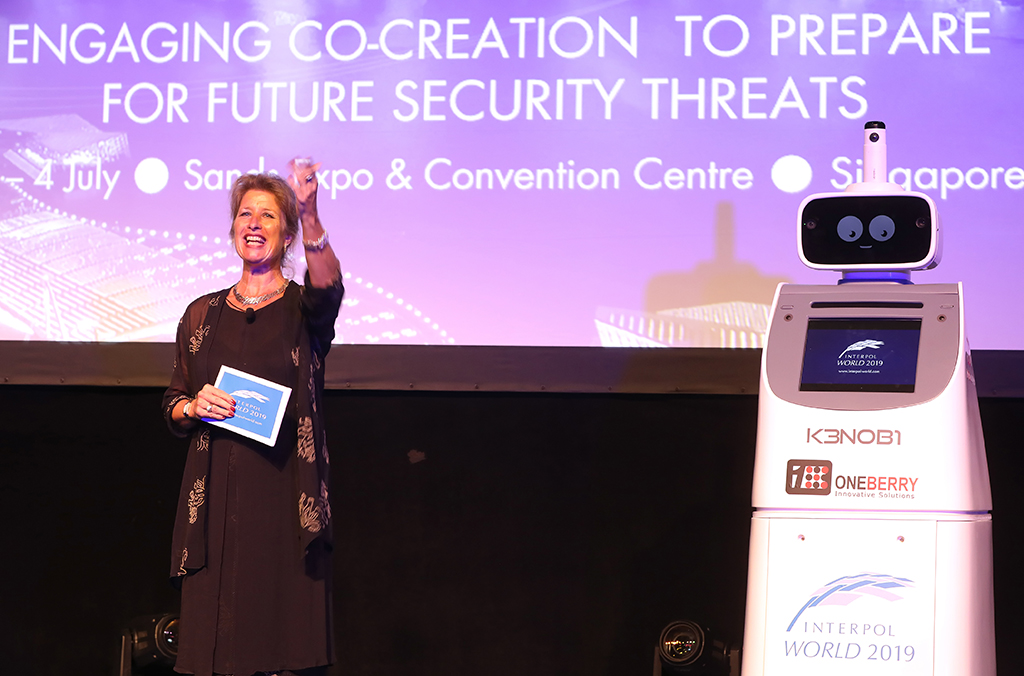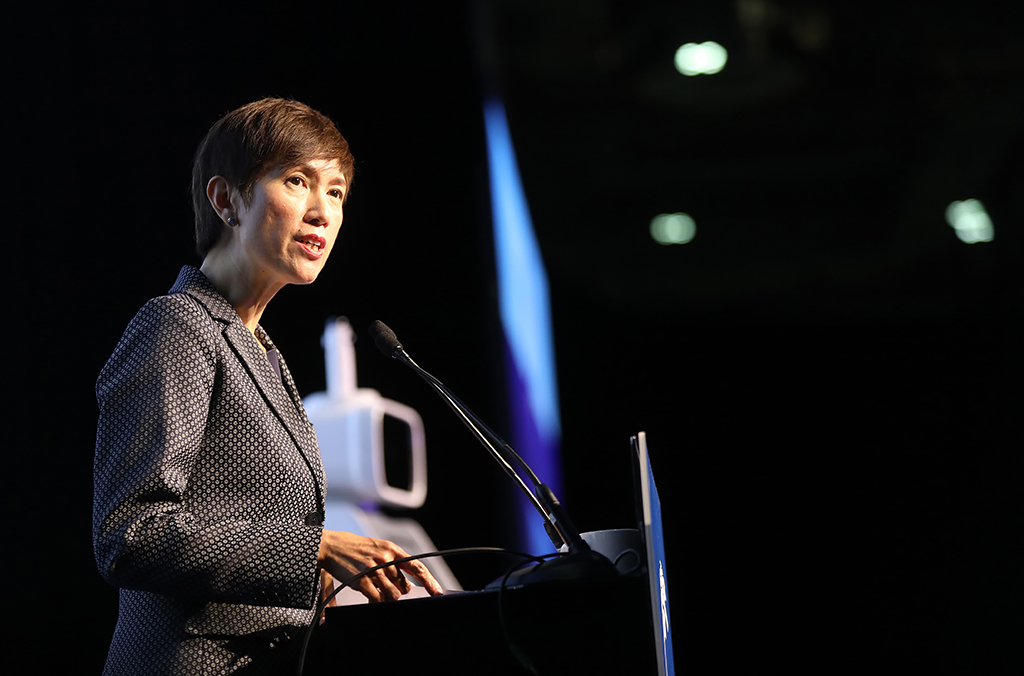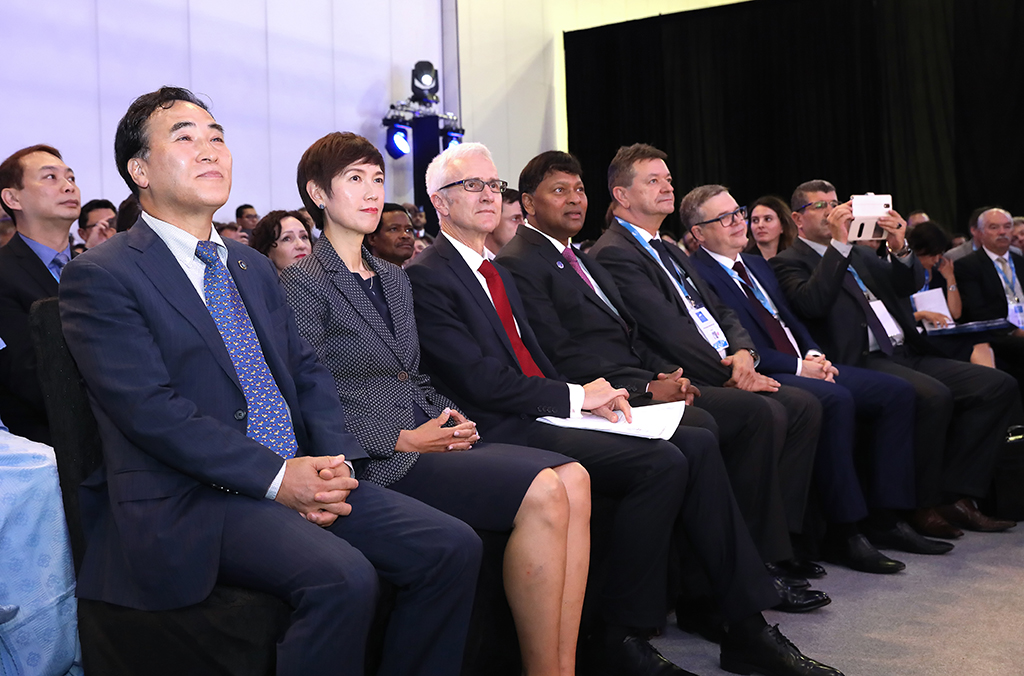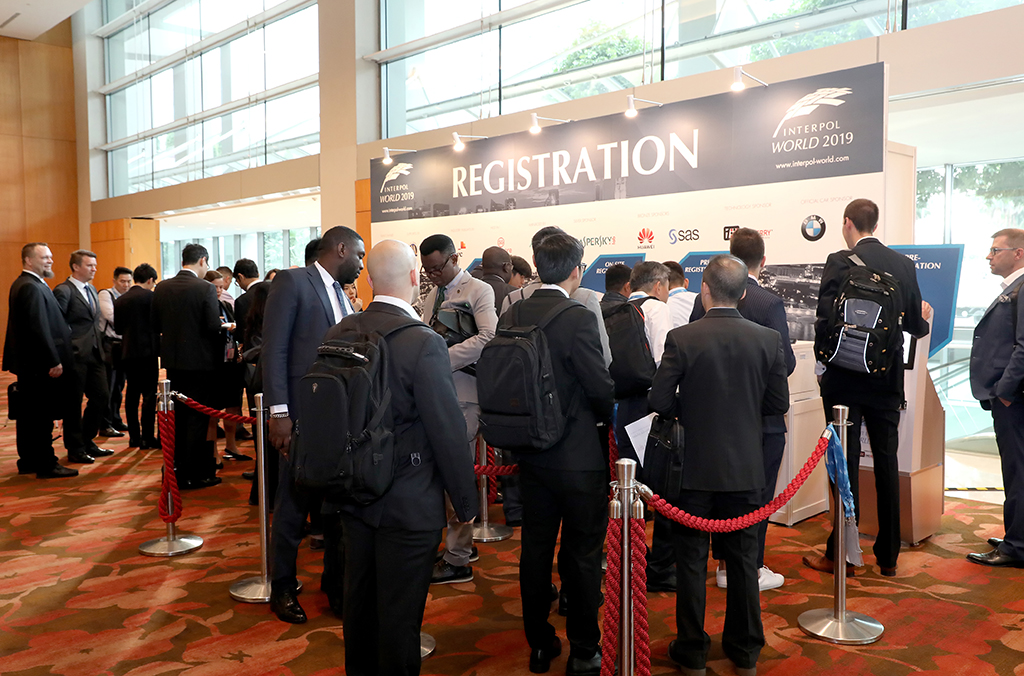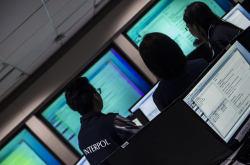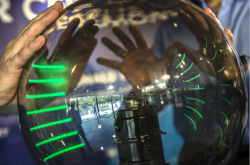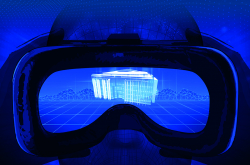SINGAPORE – In our rapidly changing world, it takes a coordinated effort of the public and private sectors to identify new threats on the horizon and ensure both police and society are prepared to face them.
This is the key message of INTERPOL World 2019, a global security and innovation conference which opened today in Singapore.
Engaging the public and private sectors to exchange ideas and expertise, the three-day (2 – 4 July) event will address how advances in technology could create unforeseen security challenges and how police can use new technologies to address them.
The INTERPOL World conference aims to produce a global innovation agenda outlining ways in which police and private industry can combine their respective talents to develop future security initiatives.
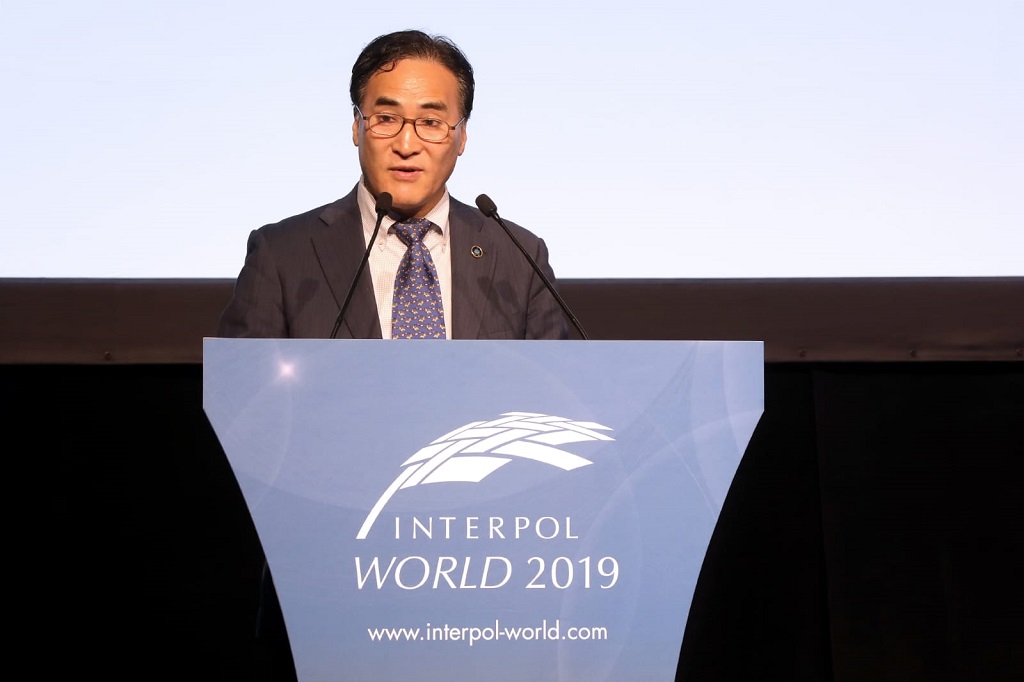
“As the race between cybercriminals and security providers continues, we must consider how prepared we are for a future which will see more connected objects; more critical infrastructure becoming networked; unmanned technology entering the mainstream; and more systems being managed by ever-evolving artificial intelligence,” said INTERPOL President Kim Jong Yang.
INTERPOL World will see 32 interactive ‘co-creation labs’, where participants will play an active role to discuss the different challenges of the future and brainstorm solutions, guided by experts from law enforcement, the private sector and academia.
Topics include drones, big data, Artificial Intelligence, counterfeiting, border security, 5G networks, virtual and augmented reality, Smart Cities, environmental crime, the Darknet, biotechnology, predictive technologies, Blockchain, and privacy.
“Since we last met in 2017, technology has evolved at such a rapid pace that yearly trend predictions are largely failing to anticipate what will hit us next,” said INTERPOL Secretary General Jürgen Stock.
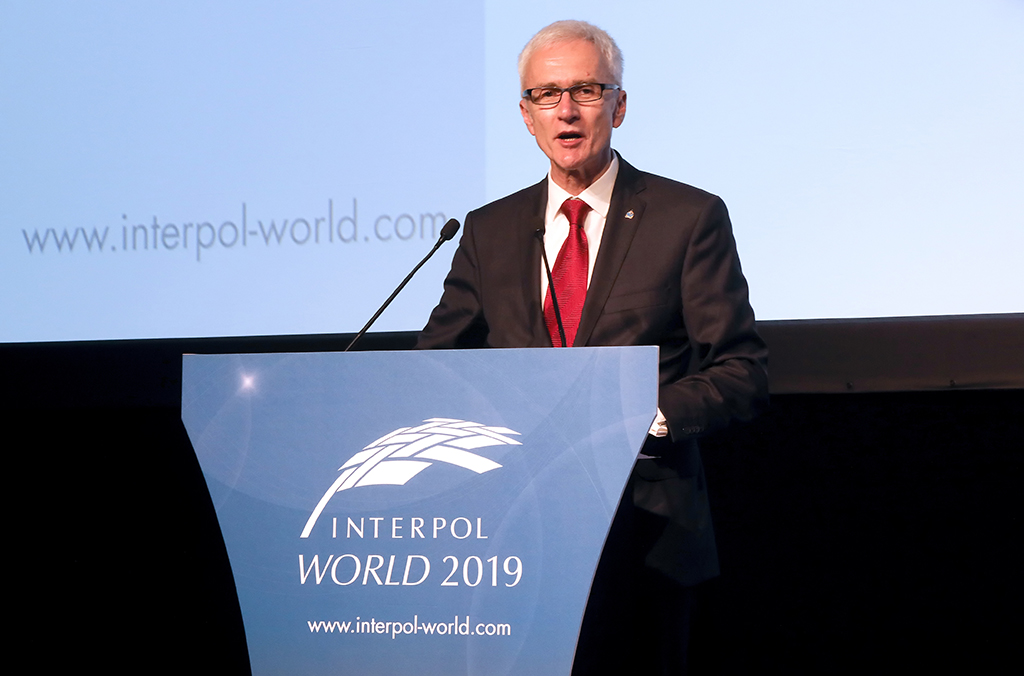
“The reaction time we can afford ourselves is plummeting, to the point where reaction is simply not an option. We must foresee, we must anticipate, and we must prepare for the next breakthrough. Our citizens are counting on us to be protected, and it will take all of us to make this happen,” added the INTERPOL Chief.
He encouraged the private security industry to consider how state-of-the-art technologies under development could be harnessed to bring tangible solutions to police in the field.
Outcomes from the co-creation lab brainstorming sessions will contribute towards a ‘global innovation agenda’ spearheaded by INTERPOL’s Innovation Centre which works with academics and experts to anticipate how society and crime might look in the future, and what implications such technological advances could have for the police.
Underscoring the importance of building networks between law enforcement and private industry to share knowledge, tools and expertise, INTERPOL World includes an exhibition showcasing the latest innovative security technologies from some 160 companies and organizations from around the world.
Countries involved
See also
Related news
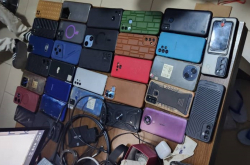
260 suspected scammers arrested in pan-African cybercrime operation
26 September 2025
Disrupting a Grandoreiro malware operation
18 March 2024




